by Tadhamun-Iraqi Women Solidarity on 15-02-2013
A CD with 20 pages booklet produced by Tadhamun - Iraqi Women Solidarity. It tells the story of the US-led attacks on Fallujah in April and November 2004, a year after the invasion and occupation of Iraq in 2003. It is told in an audio collage of Iraqi and non-Iraqi poetry, songs, music, testimonies, and news clips with the persistent sound of US Apaches hovering in the skies above the people of
Iraq.
Iraq.
CONTENT
Length 26:25”
ABOUT THE PROJECT

This is the story of the US-led attacks on Fallujah in April and November 2004, a year after the invasion and occupation of Iraq in 2003. It is told in an audio collage of Iraqi and non-Iraqi poetry, songs, music, testimonies, and news clips with thepersistent sound of US Apaches hovering in the skies above thepeople of Iraq.
Fallujah is known as the “city of mosques” because more than 200 mosques can be found in the city and its surrounding villages. Located on the banks of the Euphrates, about 70 kilometres (43 miles) west of Baghdad in the province of Al Anbar, it has 300,000 inhabitants. In 1941 the people of Fallujah fought against British colonialism, and in 2004 they resisted the Anglo-American occupation.
The 2004 siege of Fallujah was sparked by a group of men and children demonstrating in front of a primary school demanding that the occupation troops vacate it. What followed was one of the most extensive human rights violations of recent times.
The US forces bombed schools and hospitals, sniped at civilians including children carrying white flags, cut off water and medical supplies, and used incendiary weapons (napalm and white phosphorus) that had been banned by the UN Convention.
More than 70 articles of the Geneva Conventions were breached; 36,000 homes and 8,400 shops were obliterated, 60 nurseries
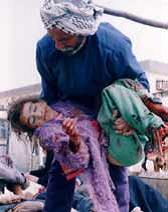
and schools were left in ruins, as were 65 mosques and religious sanctuaries. At the time journalists were actively prevented from entering the city unless embedded with the US troops.
Camps were erected around Fallujah to receive displaced women and children but men aged 15-50 were not allowed to leave the city. Therefore 150,000 civilians waited in anguish for news of their loved ones. The failure of Operation Vigilant Resolve launched in April 2004 by US troops to capture the ‘belligerent, bellicose city’ was followed by a second attack on Fallujah, between 7 November
and 23 December 2004, labelled by the US military as ‘the heaviest urban combat since the battle of Hue City in Vietnam in 1968’.
This CD is our ode to a heroic city, to those who only had valour and determination with which to defend themselves while facing the might of the world’s leading superpower.
The terror endured by the people of Fallujah reminds us of an earlier barbarism: The Nazi bombing of the innocents of the Spanish village of Guernica. Just like Guernica, Fallujah has become a symbol of wanton destruction.
It is worth noting here that the sounds and voices of the songs of resistance and some other recordings included in this CD are distinctly different from those we are familiar with, i.e. good quality studio recordings. Due to the extreme difficulties of clandestine production and limited funds and technology, only a few basic instruments were used in, for example, the songs of resistance.
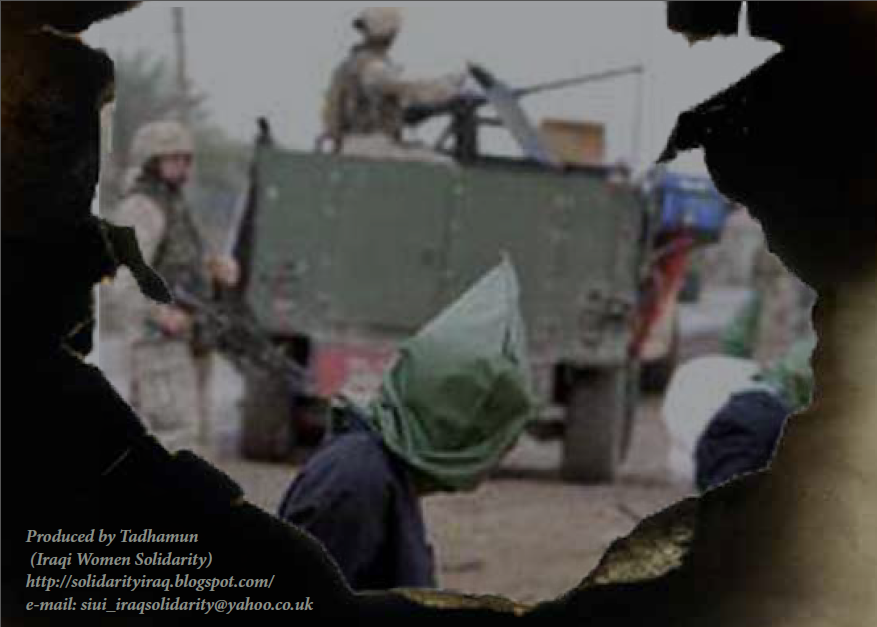
Here they have been effectively incorporated to replicate the horrific sounds of bombardment and the defying chanting of the people.
Needless to say, none of the songs of resistance are on mainstream radio or television in Iraq. CDs, DVDs and videos can be found on the internet and under the counter in the few remaining Iraqi CD shops; or are, as we like to say in Iraq, ‘saved in our heads’.
Sometimes songs are accompanied by videos or images depicting the brutality of the occupation: destroyed homes, prisoners in Abu Ghraib, dead children, women mourning their loved ones – and young people throwing stones at humvees and tanks (like the Palestinian youths) or chanting al-hausa to celebrate the success of an assault.
Tadhamun : Iraqi Women Solidarity - February 2013
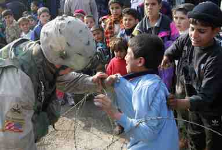 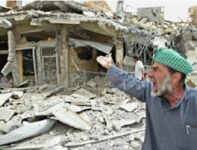 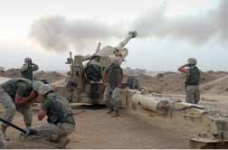  |
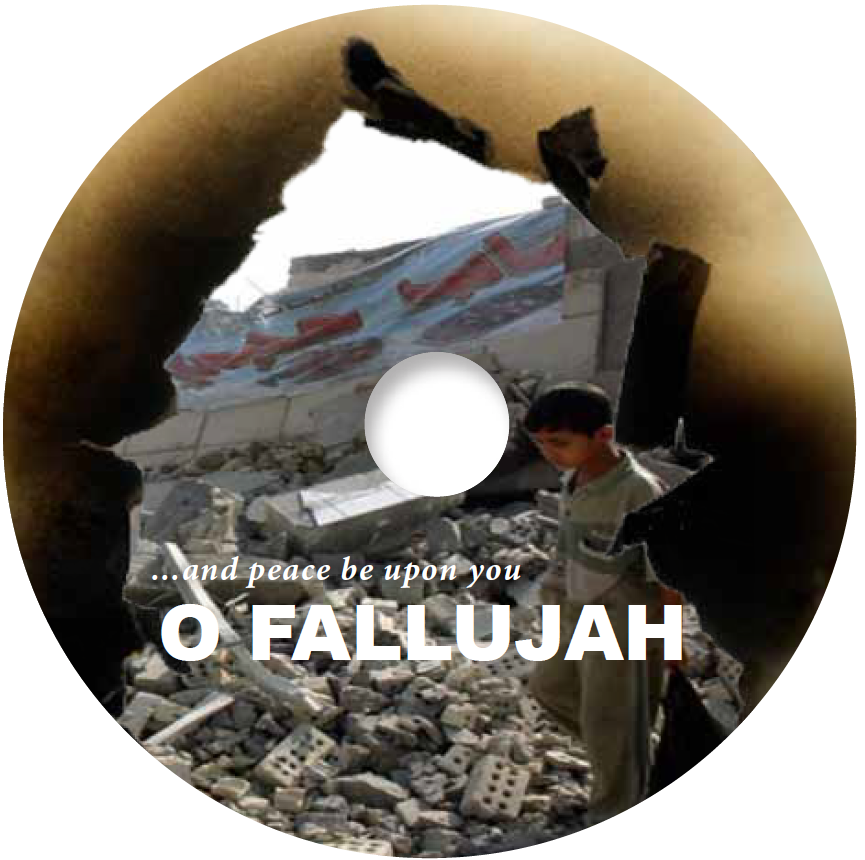
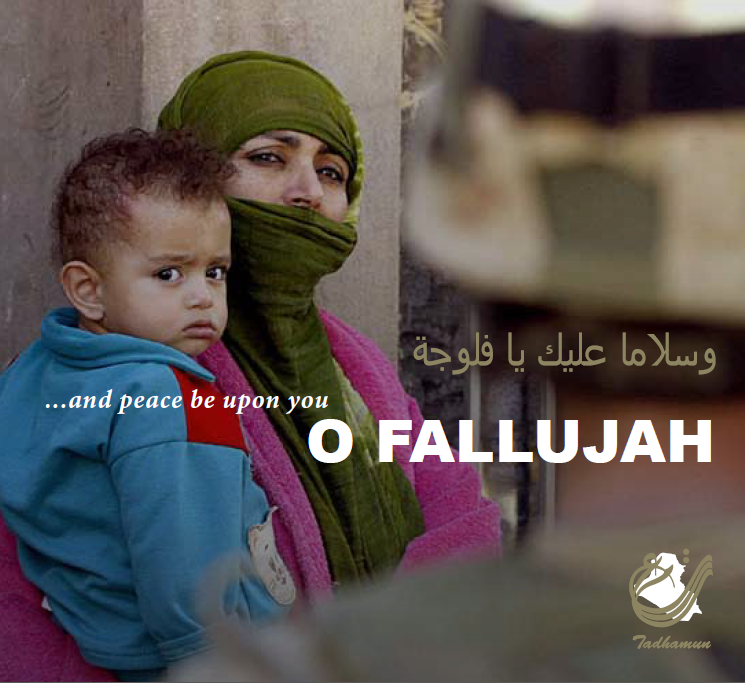
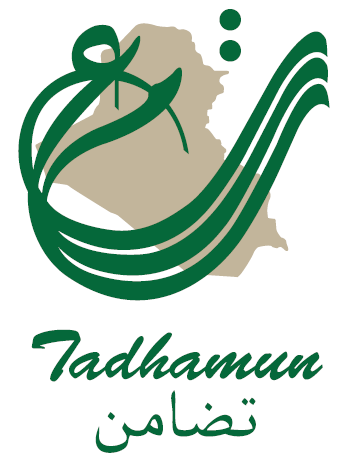

No comments:
Post a Comment